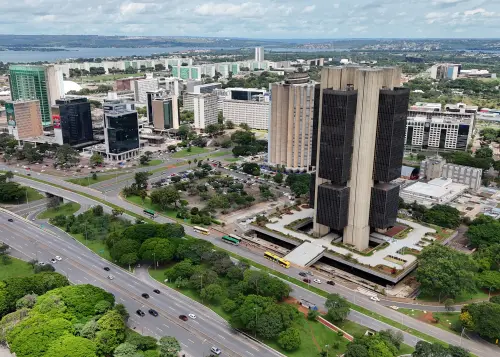Brazil's federal public debt decreased in January amidst easing concerns over U.S. trade policy under President Donald Trump, which benefitted emerging markets. This led to a drop in local interest rates futures and a flattening of the yield curve.
Data from the Treasury revealed that the country's public debt decreased by 0.87% from the previous month to 7.253 trillion reais ($1.26 trillion). This decline was driven by net redemptions of 109.76 billion reais and interest payments totaling 46.37 billion reais.
Domestic debt issuance rates were observed to be on a downward trend, after a notable increase in December caused by uncertainty surrounding Trump's policies and local fiscal issues following a disappointing government fiscal package which unsettled investors.
Despite this, the average cost of domestic bond issuance over 12 months increased to 11.36% from 11.04% in December. This rise was attributed to the central bank's recent tightening cycle, which included a 100 basis-point rate hike in late January, bringing interest rates to 13.25%.
With inflationary pressures persisting due to a tight labor market and robust economic activity, policymakers have indicated another impending rate hike of the same scale at the upcoming March policy meeting.
(1 USD = 5.7715 BRL)
